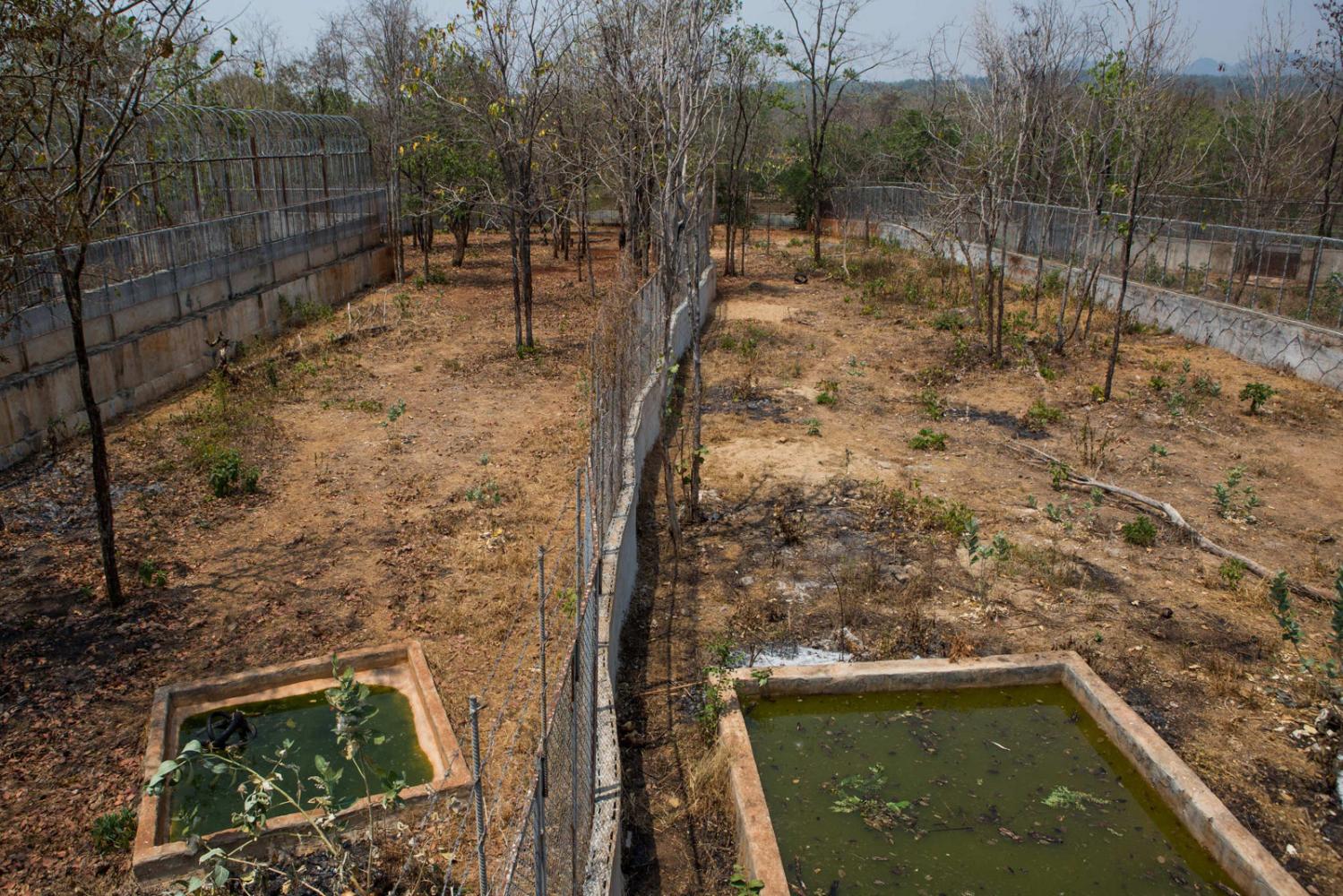Public Project
Thailand's Tiger Temple
One such place was the infamous Tiger Temple in Kanchanaburi, founded in 1994 as a monastery and sanctuary for abandoned animals. What was seven tiger rescues in 2001 became nearly 150 tigers in 2016, and with them a controversial tourism program run on the temple grounds.
In early June 2016, evidence of illegal trafficking emerged from the Tiger Temple and allegations were made against the upper management and abbot, Phra Sutthi Sarathera. The Tiger Temple, unlike the dozens of other offending (but often overlooked) zoos across Thailand lacked a legal zoo permit, prompting wildlife officials to conduct a massive raid to confiscate the tigers in the face of public and media pressure. In an ambitious task that posed great risk to the tigers’ physical and mental health, 137 tigers were transferred in one week to official facilities, where they remain with the potential to be sold to legal zoos.
Separate from the upper management, the ground staff and volunteer caretakers who worked on improving the welfare of the temple’s tigers feel their progress has been halted by the raid. Those close to the tigers continue to be deeply concerned about their future in the new facilities, which are a significant quality downgrade from their previous environment. Meanwhile, those who called for the shutdown have abandoned accountability and attention to these welfare concerns, even as the accused abbot announces plans to soon open a legal zoo.
The emotive human response in the digital age surrounding animal rights issues often fogs the complexities of welfare concerns. Cultural and bureaucratic intricacies can further stonewall solutions, leaving the ultimate welfare of the animals overlooked in the process. No better could this be seen played out than in the story of the Tiger Temple, a singular circumstance in Thailand’s ever-expanding tiger-tourism industry
and animal trafficking crisis.
5,064


























